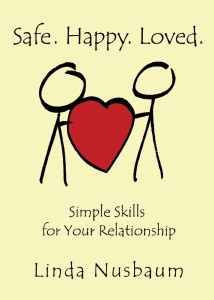You may wonder sometimes why your good ideas or intentions can be brushed aside by people who you believe with all your heart you can help. It is very frustrating to see an answer to someone’s problems and yet not be able to get through to them to relieve their suffering.
All of us suffer in our own way. We get frustrated when things don’t go as expected, or we get upset when things are interrupted by someone else. This is the great human condition that we all live with. But have you noticed that some people get less frustrated than others? Have you observed that some people are actually not perturbed by things the way you might be?
We Learn Our Personal Mode of Problem Solving as Children

This all boils down to the way we are wired. When we are very little and we tried to do something we followed that effort with a reaction. If we accomplish what we set out to do there might have been elation and happiness. If we didn’t get something working right or we failed altogether, we might have been upset and frowned.
You can see this play out in young children, whether it’s through the intense joy of accomplishing a simple task or the immediate sorrow of failing. This is how we become wired as humans and we take this wiring into our adult life. And while our reactions may have altered some, we probably don’t have tantrums anymore or throw a party for ourselves when we get things right; we still react with some kind of behavior, and that behavior is a direct result of our old wiring.
Pride Can Make Us Not Want Others’ Help

I know when I set out to do something I want to do it really well. I want to achieve success. If I don’t get it right, I feel a little frustration. That’s the way I am wired. I used to get really frustrated. Now I just accept that I will get frustrated, but I will be okay, and I can always try something else.
But I usually hate it when someone else tries and tells me how to do it better. I bristle when someone, not me, mentions another alternative. I like to rely on myself and if I don’t get it right the first time, I will continue to work on it until I do get it right. Nowhere in my experience do I rely on another.
Remember That Suggestions Come From Wanting to Help, Not Harm
And yet, the more I am with my husband and allow his good sense and way of doing things to penetrate my wall of insistence that I and only I know how to do things, I am often surprised and relieved and how much help his ideas bring.
It has taken me a long time to understand that he is not trying to harm me when he points out another way of doing something. Even though it sometimes feels as if he is criticizing me for not doing it his way, he has assured me numerous times that he is not trying to make me feel bad, he is merely offering a helpful thought that popped into his head.
And that’s what I think we all do. We are a helpful sort of folk. When we see something that we think we can fix, we offer our ideas. This is not a crime. This is just good will. But I see in even my own life how hard it is to let someone else’s ideas matter. We have to come a long way from seeing that we are the only ones who know how to do things well. And sometimes that journey can take a lifetime.
Would You and Your Partner Like to Feel Heard?
Read a Book About Relationships
If you’re still struggling with listening to each other, try reading Linda’s book Safe. Happy. Loved. Simple Skills for Your Relationship. It just might help you develop tools to see past your feelings and communicate in constructive ways that are easy to hear. Give it a read.
Get Couples Counseling
Come in for couples counseling. Couples counseling can help you and your loved one get the most out of your relationship. It'll equip you with coping strategies and tools for communication that can help you argue less and love more.


